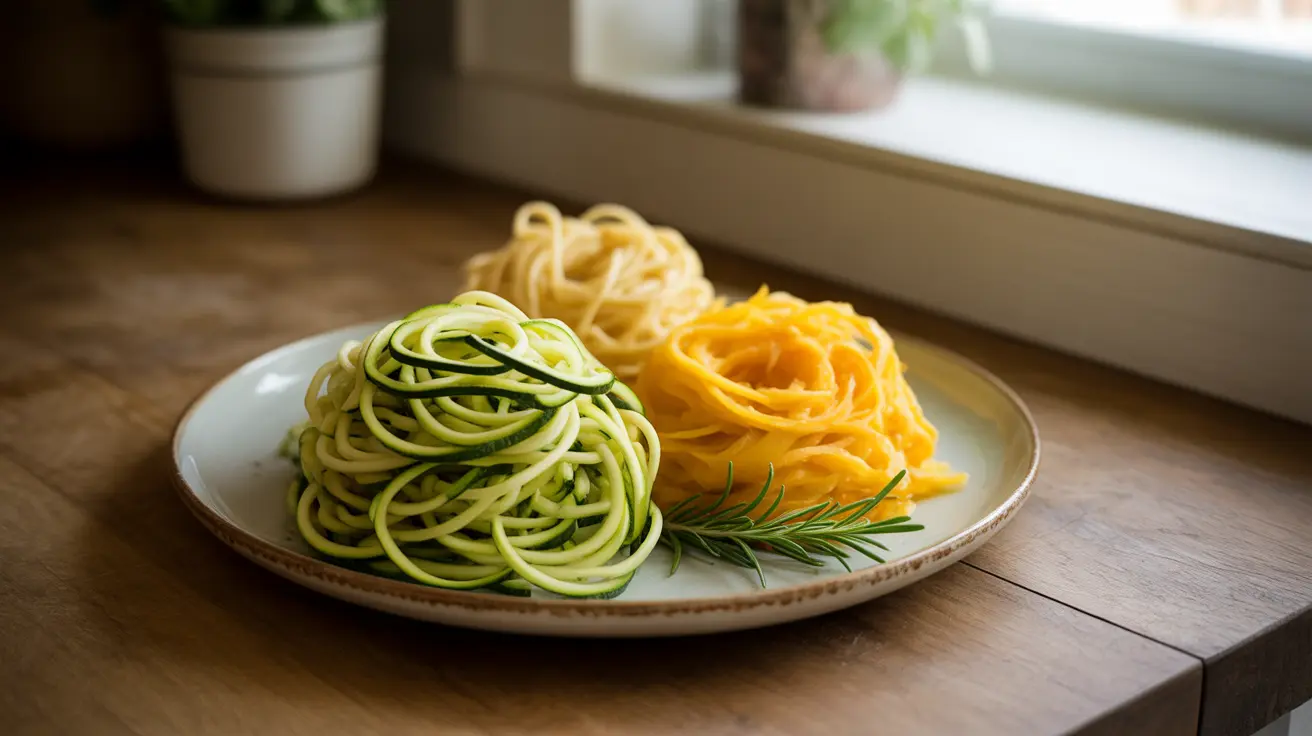Looking to enjoy your favorite pasta dishes while maintaining a low-carb lifestyle? Veggie pasta alternatives have revolutionized the way we think about noodles, offering delicious and nutritious options that won't spike your blood sugar. These innovative alternatives provide the same satisfying texture and versatility as traditional pasta while packing in extra nutrients and fewer carbohydrates.
In this comprehensive guide, we'll explore the world of low-carb veggie pasta, from the most popular options to preparation tips and health benefits. Whether you're managing diabetes, following a keto diet, or simply trying to eat healthier, these vegetable-based alternatives can help you achieve your dietary goals without sacrificing flavor.
Popular Low-Carb Veggie Pasta Options
Several vegetables can be transformed into pasta-like noodles, each offering unique flavors and textures:
- Zucchini noodles (zoodles)
- Butternut squash spirals
- Sweet potato noodles
- Spaghetti squash
- Carrot noodles
- Hearts of palm pasta
- Kohlrabi noodles
Among these options, zucchini noodles remain the most popular choice due to their mild flavor, versatility, and extremely low carb content. Spaghetti squash offers a naturally stringy texture that closely mimics traditional pasta, while sweet potato noodles provide a slightly sweeter alternative with additional nutritional benefits.
Nutritional Benefits and Health Impact
Low-carb veggie pasta alternatives offer numerous health advantages over traditional wheat-based pasta:
- Significantly fewer carbohydrates
- Higher fiber content
- Lower calorie count
- Additional vitamins and minerals
- Better blood sugar control
- Increased vegetable intake
These alternatives are particularly beneficial for individuals managing diabetes or following ketogenic diets, as they help maintain stable blood sugar levels while satisfying pasta cravings.
Preparation Methods and Tips
Tools and Equipment
To create veggie pasta at home, you'll need one of the following:
- Spiralizer
- Julienne peeler
- Standard vegetable peeler
- Mandoline slicer
- Food processor with spiral attachment
Cooking Techniques
Different veggie pasta options require specific cooking methods for optimal results:
- Raw: Some vegetables can be enjoyed raw for maximum crunch
- Sautéed: Quick cooking maintains texture while softening slightly
- Steamed: Gentle cooking preserves nutrients
- Roasted: Enhances natural flavors and creates firmer texture
Storage and Meal Prep
To maintain freshness and prevent excess moisture:
- Store uncooked veggie noodles in airtight containers with paper towels
- Prepare only what you'll eat within 2-3 days
- Avoid freezing raw veggie noodles as they can become mushy
- Pat dry before cooking to prevent waterlogged dishes
Frequently Asked Questions
What are the most popular low-carb veggie pasta alternatives to traditional wheat pasta?
The most popular low-carb veggie pasta alternatives include zucchini noodles (zoodles), spaghetti squash, butternut squash spirals, and hearts of palm pasta. These options provide similar textures to traditional pasta while containing significantly fewer carbohydrates.
How does a low-carb veggie pasta diet impact blood sugar management and overall health?
Low-carb veggie pasta helps maintain stable blood sugar levels due to its lower carbohydrate content and higher fiber. This makes it an excellent choice for diabetes management and weight control while providing additional nutrients from vegetables.
What are some easy and quick ways to prepare low-carb veggie pasta dishes at home?
The quickest methods include using a spiralizer or julienne peeler to create noodles, then either enjoying them raw or cooking briefly in a pan with olive oil. For spaghetti squash, simply cut in half, roast, and scrape out the natural noodle-like strands.
Are all low-carb veggie pasta options suitable for vegans and gluten-free diets?
Yes, most vegetable-based pasta alternatives are naturally vegan and gluten-free. However, always check packaged products for additional ingredients that might contain gluten or animal products if following specific dietary restrictions.
What are the key nutritional benefits of using vegetable-based noodle substitutes in pasta recipes?
Vegetable-based noodle substitutes offer increased fiber, vitamins, and minerals while providing fewer calories and carbohydrates than traditional pasta. They also contribute to daily vegetable intake and support better digestion and overall nutrition.




